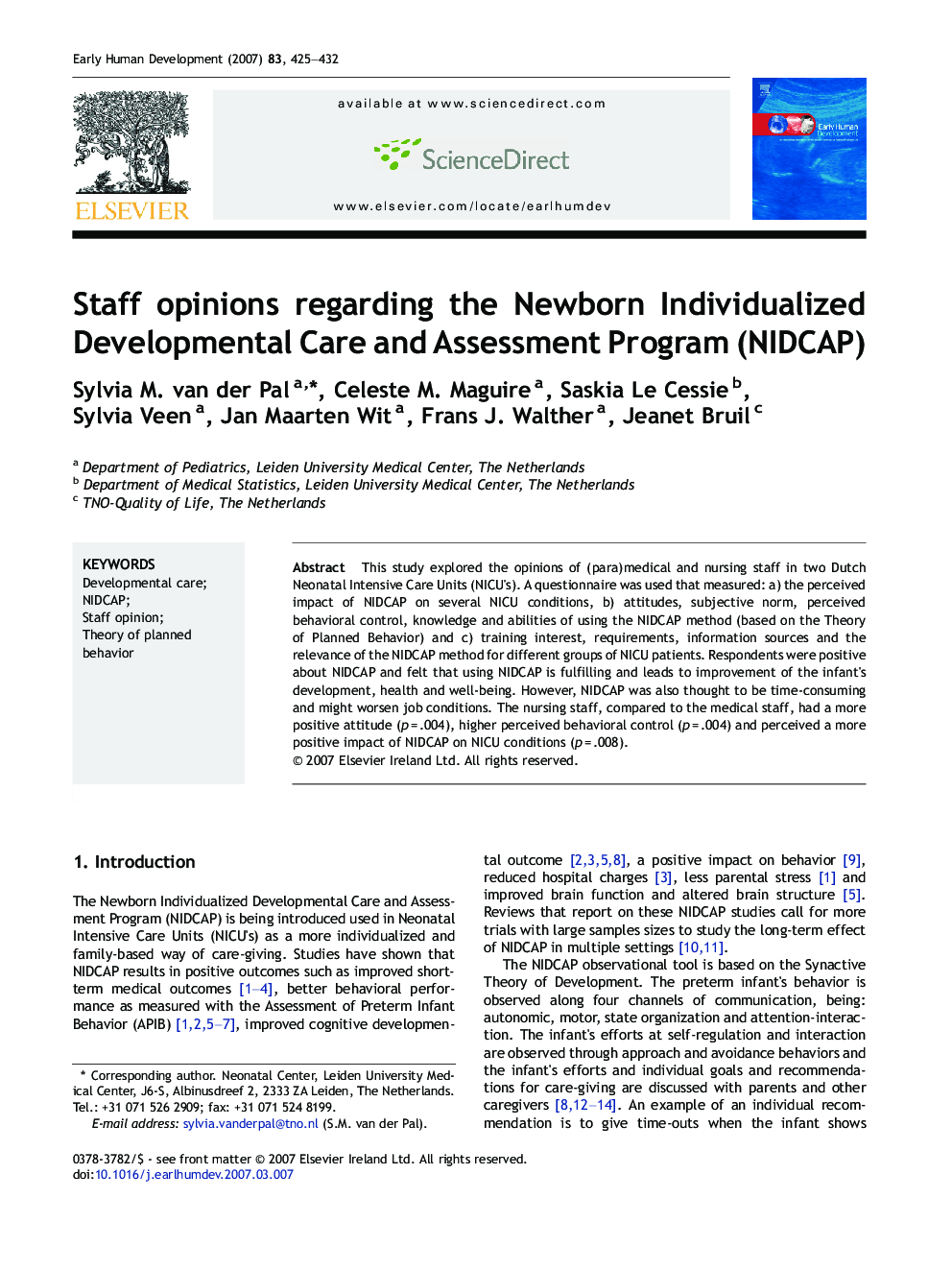| Article ID | Journal | Published Year | Pages | File Type |
|---|---|---|---|---|
| 3918315 | Early Human Development | 2007 | 8 Pages |
This study explored the opinions of (para)medical and nursing staff in two Dutch Neonatal Intensive Care Units (NICU's). A questionnaire was used that measured: a) the perceived impact of NIDCAP on several NICU conditions, b) attitudes, subjective norm, perceived behavioral control, knowledge and abilities of using the NIDCAP method (based on the Theory of Planned Behavior) and c) training interest, requirements, information sources and the relevance of the NIDCAP method for different groups of NICU patients. Respondents were positive about NIDCAP and felt that using NIDCAP is fulfilling and leads to improvement of the infant's development, health and well-being. However, NIDCAP was also thought to be time-consuming and might worsen job conditions. The nursing staff, compared to the medical staff, had a more positive attitude (p = .004), higher perceived behavioral control (p = .004) and perceived a more positive impact of NIDCAP on NICU conditions (p = .008).
